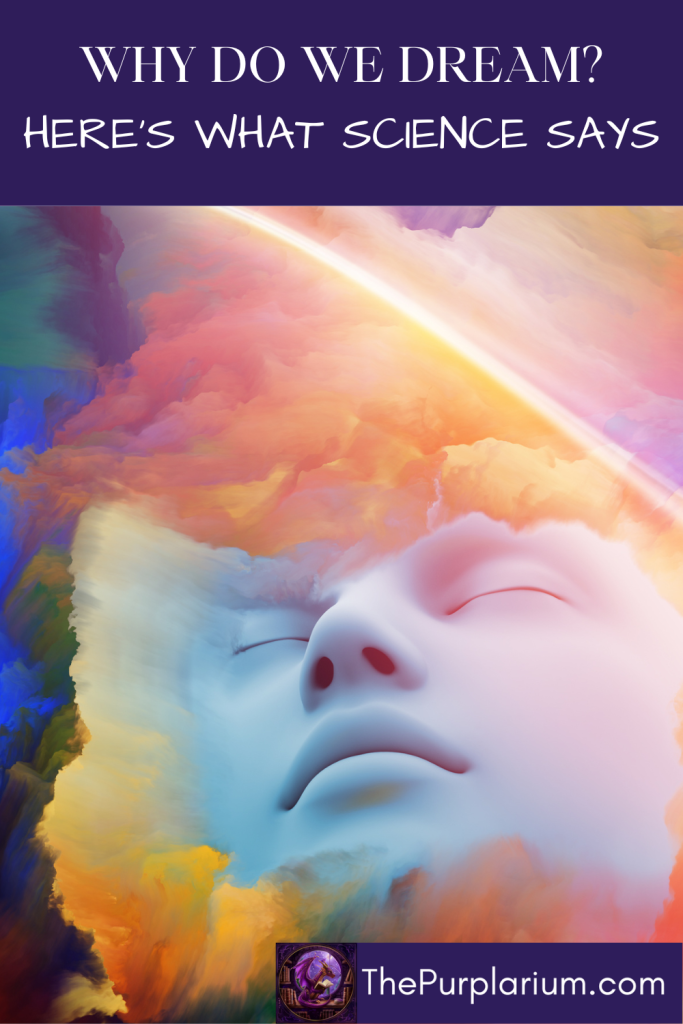Dreams have fascinated humans for centuries, inspiring myths, stories, and scientific inquiry. Despite extensive research, the exact reason we dream remains a mystery. However, scientists have proposed several theories that provide insight into why we experience these vivid nocturnal narratives. Let’s explore some of the leading explanations for why we dream.

The Role of REM Sleep
Dreams occur mainly during the Rapid Eye Movement (REM) stage of sleep. During REM sleep, our brains are highly active, almost as if we are awake. This stage is characterized by rapid eye movements, increased heart rate, and vivid dreams. The brain’s activity during REM sleep suggests that dreaming might play a crucial role in our mental and emotional health.
Memory Consolidation
One widely accepted theory is that dreaming helps with memory consolidation. During sleep, the brain processes and organizes the information we’ve gathered throughout the day. Dreams may be a byproduct of this process, helping to sort and store memories. This could explain why we often dream about recent events or people we’ve interacted with.
Emotional Regulation
Dreams might also serve to regulate our emotions. By replaying and processing our experiences, dreams can help us deal with stress, anxiety, and other emotions. This theory suggests that dreaming is a way for our brains to manage emotional turmoil and maintain psychological balance.
Problem-Solving
Another theory posits that dreams are a form of problem-solving. When we dream, our brains might be working through problems or challenges we face in our waking lives. This idea, known as the “continuity hypothesis,” suggests that dreams reflect our concerns, desires, and fears. By exploring these issues in a dream state, we might find solutions or new perspectives that we hadn’t considered while awake.
Creativity Boost
Some researchers believe that dreaming fosters creativity. The bizarre and often illogical nature of dreams can lead to unique connections and ideas that we might not think of during our waking hours. Many artists, writers, and inventors have credited their dreams with inspiring creative breakthroughs.
Brain Detox
A more recent theory is that dreaming helps our brains “detox” by flushing out unnecessary or harmful information. During sleep, our brains clear out toxins and waste products that accumulate throughout the day. Dreaming might be a part of this cleaning process, helping to maintain brain health and function.
Threat Simulation
The “threat simulation theory” proposes that dreams allow us to practice responses to potential dangers. By simulating threatening situations, our brains can rehearse how to react and stay safe. This evolutionary perspective suggests that dreaming has survival value, preparing us to face real-world threats more effectively.
Random Neural Activity
Some scientists argue that dreams are simply a byproduct of random neural activity. According to this theory, known as the “activation-synthesis hypothesis,” dreams don’t have a specific purpose. Instead, they result from the brain trying to make sense of spontaneous neural firing during REM sleep. Our minds create stories and images to interpret these random signals.
Freud’s Theory of Wish Fulfillment
Sigmund Freud, the famous psychoanalyst, had a different take on dreams. He believed that dreams are a form of wish fulfillment, allowing us to express unconscious desires and thoughts that we suppress during the day. While many of Freud’s ideas have been challenged or disproven, his theory of dreams as windows into our unconscious mind continues to influence the study of dreaming.

Do We Really Know?
Although we don’t fully understand why we dream, these theories offer intriguing possibilities. Dreams might help us process memories, regulate emotions, solve problems, boost creativity, or prepare for threats. They could also be a byproduct of random brain activity or a means to clean out mental clutter. As research continues, we may uncover more about the mysterious and fascinating world of dreams. For now, we can appreciate the role they play in our lives, offering a nightly escape into the depths of our minds.
